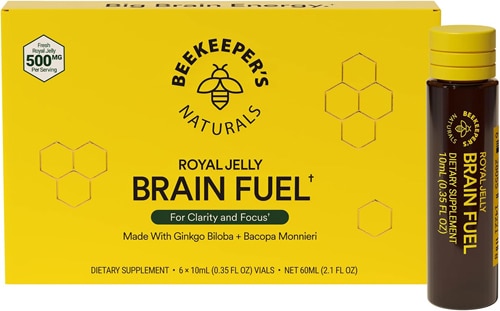[vc_row][vc_column][vc_column_text]Millions of people sip
coffee or gulp energy drinks in hopes of getting a pick-me-up during the day. However, some people find that the pleasant buzz of caffeine can turn into something more sinister.
These folks develop a dependence on caffeine. In the worst cases, they may even feel that they are powerless to control their need for the stimulant.

"While most people can consume caffeine without any problems, some develop an addiction to it," says
Dr. Harold Hong, medical director at New Waters Recovery, an addiction and mental health treatment center in Raleigh, North Carolina.
October is Caffeine Addiction Recovery Month, the ideal time to consider the possible dangers of too much caffeine, and what you should do if you find yourself dependent on the stimulant.
What is caffeine addiction, and how serious is it?
Caffeine is a stimulant that acts on both the brain and nervous system. Experts have noted that
caffeine can be classified as a nutrient, drug or a drug of abuse, depending on how it is used.
A 2015
study published in the Journal of Caffeine Research called caffeine "the most consumed psychoactive drug in the world” and noted that it displays "the pharmacological properties of classical psychostimulants, such as cocaine and amphetamine."
Hong notes that the
American Psychiatric Association does not classify caffeine addiction as a substance use disorder, but instead says caffeine use disorder needs further study.
However, excessive consumption of caffeine can lead to dependence, Hong says.
"Some people may build up a tolerance to the substance, needing more and more to feel its effects," he says.
While a small amount of caffeine can help you feel more alert and improve your focus, too much can have the opposite effect, says
Dr. David Seitz, acting medical director at Ascendant New York, a drug and alcohol detox center.
“You may start to feel jittery, anxious, or even experience headaches,” he says. “Your heart rate may also increase, which can be dangerous if you have a heart condition.”
Other symptoms associated with too much caffeine include tremors and insomnia.
Who is at greatest risk of caffeine addiction?
Anybody can develop an addiction to caffeine, Seitz says. You are most likely to become addicted to caffeine if you drink large amounts of it every day, he adds.
“A good example is those who start their day off with a strong cup of coffee and then drink several more throughout the day to stay energized,” he says. “Usually, those who have busy schedules and can't catch a break are those who turn to caffeine as a crutch.”
Some groups of people -- such as college students who stay up late every day but then turn to caffeine because they have to get up early – also are higher risk of developing a dependency, Seitz says.
Hong says people with anxiety disorders or other mental health conditions may be more susceptible to developing an addiction.
"Caffeine can exacerbate symptoms of anxiety and make them feel worse," he says.
Quitting caffeine safely
Both Hong and Seitz say it is safe to consume up to 400 milligrams of caffeine a day. That is about four cups of brewed coffee.
If you are taking in more than that amount of caffeine and want to cut back or quit, do so carefully, Hong says. Those who become dependent on caffeine can suffer withdrawal symptoms when suddenly
quitting caffeine cold turkey, he says. Such symptoms may include:
- Headache
- Depressed mood
- Low energy
So, gradual withdrawal is often the best method for breaking a caffeine addiction.
"This means slowly reducing your intake over time until you're eventually off the substance entirely," Hong says.
Seitz suggests gradually cutting back on the number of cups of coffee you drink each day, or switching to a weaker brew. “If you're drinking energy drinks, cut back on those as well,” he says.
As you kick the caffeine habit, you might start looking for alternatives to the beverages you used to consume. Hong suggests replacing the source of your caffeine intake with more healthful and caffeine-free alternatives. Examples might include:
Seitz says eating fruits and vegetables can be a great way to get a caffeine-free energy boost.
“This way, you'll not only be getting the benefits of a healthy diet, but you'll also be weaning yourself off of caffeine,” he says. “Your body won't constantly be looking for that next caffeine fix, and you'll eventually be able to cut it out completely.”
Finally, if you are struggling to kick your caffeine habit, both Hong and Seitz say seeking assistance – from a doctor or therapist, or by joining a support group – can be helpful.
"Specifically, a mental health professional can offer coping and problem-solving strategies for dealing with difficult withdrawal symptoms and triggers," Hong says.[/vc_column_text][/vc_column][/vc_row][vc_row][vc_column][vc_text_separator title="Featured Products" border_width="2"][vc_row_inner equal_height="yes" content_placement="middle" gap="35"][vc_column_inner width="1/3"][vc_single_image image="162920" img_size="full" alignment="center" onclick="custom_link" img_link_target="_blank" css=".vc_custom_1666235691981{padding-right: 7% !important;padding-left: 7% !important;}" link="https://www.vitacost.com/zolt-plant-powered-superdrink-mix-peak-mushroom-complex"][/vc_column_inner][vc_column_inner width="1/3"][vc_single_image image="162921" img_size="full" alignment="center" onclick="custom_link" img_link_target="_blank" css=".vc_custom_1666235748777{padding-right: 7% !important;padding-left: 7% !important;}" link="https://www.vitacost.com/teeccino-organic-roasted-herbal-tea-caffeine-free"][/vc_column_inner][vc_column_inner width="1/3"][vc_single_image image="162919" img_size="full" alignment="center" onclick="custom_link" img_link_target="_blank" css=".vc_custom_1666235777538{padding-right: 7% !important;padding-left: 7% !important;}" link="https://www.vitacost.com/om-energy-plus-citrus-orange-mushroom-superfood-powder"][/vc_column_inner][/vc_row_inner][/vc_column][/vc_row]
 "While most people can consume caffeine without any problems, some develop an addiction to it," says Dr. Harold Hong, medical director at New Waters Recovery, an addiction and mental health treatment center in Raleigh, North Carolina.
October is Caffeine Addiction Recovery Month, the ideal time to consider the possible dangers of too much caffeine, and what you should do if you find yourself dependent on the stimulant.
"While most people can consume caffeine without any problems, some develop an addiction to it," says Dr. Harold Hong, medical director at New Waters Recovery, an addiction and mental health treatment center in Raleigh, North Carolina.
October is Caffeine Addiction Recovery Month, the ideal time to consider the possible dangers of too much caffeine, and what you should do if you find yourself dependent on the stimulant.



